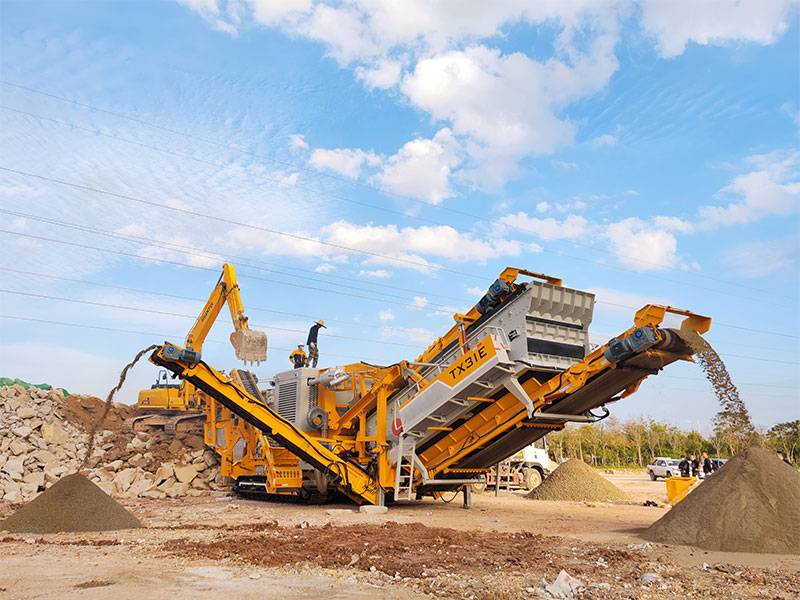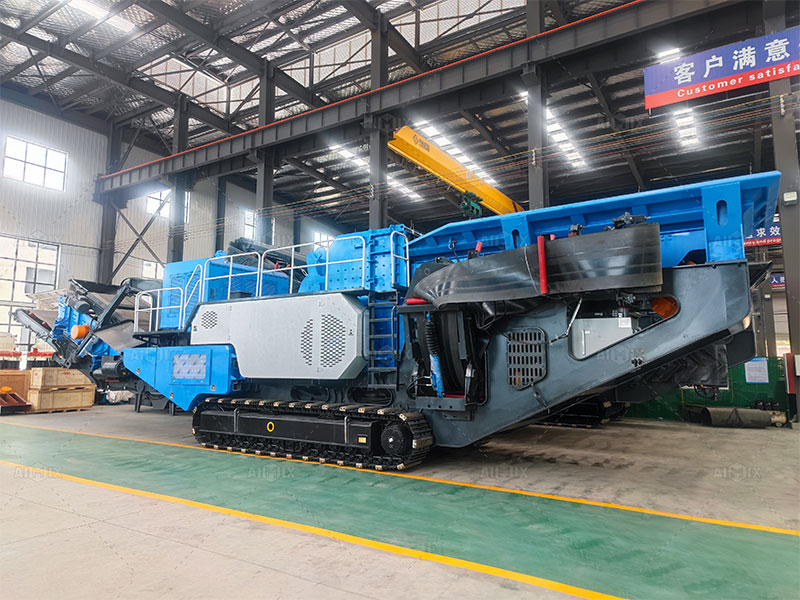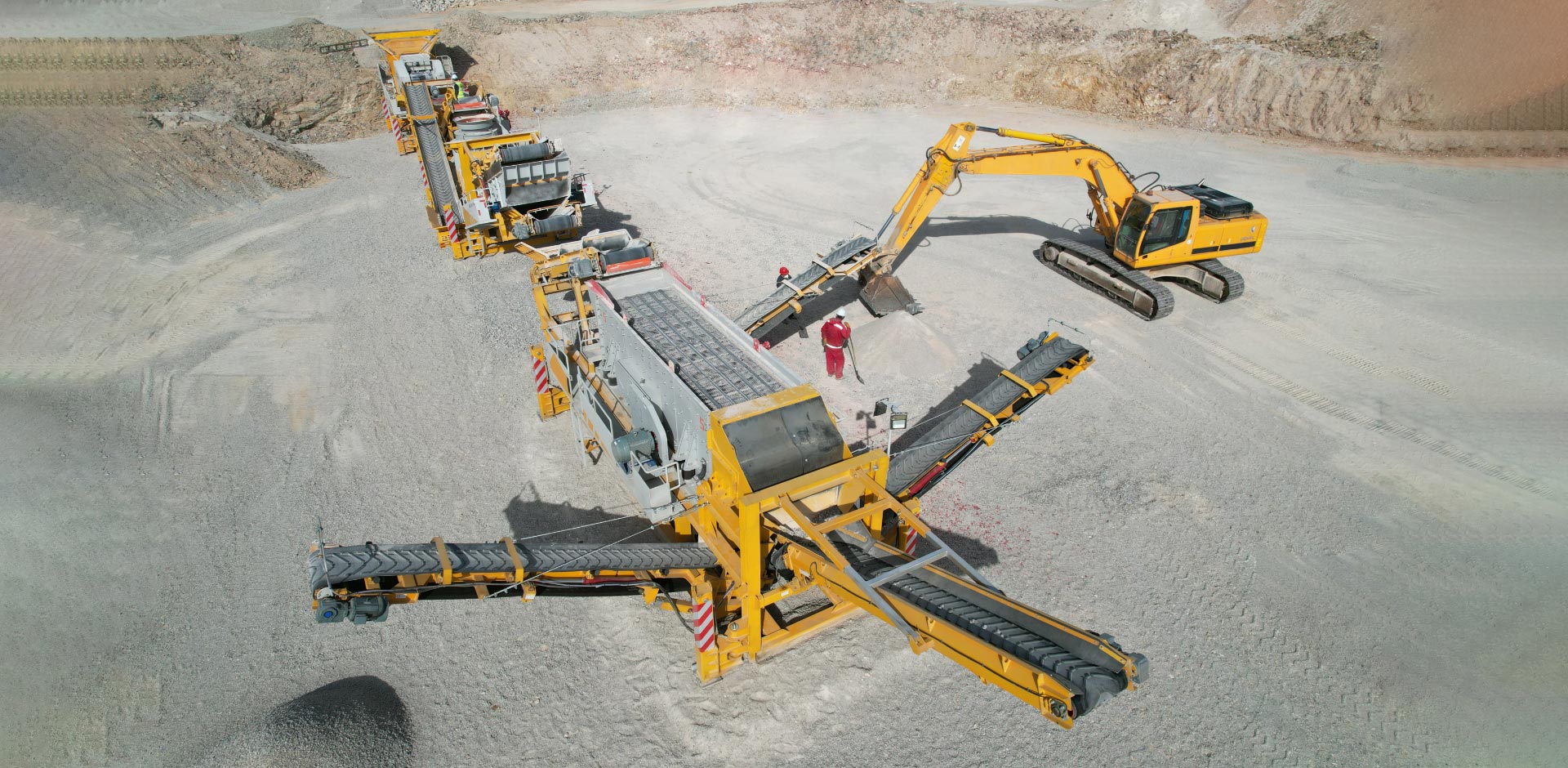In the intricate web of industries, the journey from raw material extraction to finished product often involves a crucial intermediary – the crusher plant. These versatile installations play a pivotal role in transforming large rocks and ores into smaller, more manageable pieces, setting the stage for subsequent processes in the production chain.
The Mining Prelude
The production chain begins deep within the earth, where valuable minerals, metals, and aggregates lie dormant. Mining operations, whether in quarries or extraction sites, unearth these raw materials. In their natural state, these materials are often oversized and unsuitable for immediate use. Here the crusher plant for sale is the initial link in the production chain.

Primary Crushing
The primary function of a crusher plant is to break down large rocks or ores into smaller, manageable fragments. This primary crushing phase is crucial for the entire production chain, as it sets the foundation for subsequent processing steps. Depending on the type of material and desired end product, different types of crushers – jaw crushers, gyratory crushers, impact crushers, or cone crushers – may be employed to achieve the required size reduction.
Aggregate Production for Construction
In the construction industry, aggregates are the building blocks of infrastructure. Once extracted and crushed by a crusher plant, rocks, and stones are transformed into aggregates of various sizes. These aggregates, including crushed stone, gravel, and sand, become essential components in the production of concrete, asphalt, and road-based materials. The crusher plant, acting as the linchpin, ensures that these construction materials meet precise specifications for strength, size, and gradation.
Mineral Processing for Industrial Uses
For minerals and metals extracted from mining operations, the mobile crusher and screening plant serves as the gateway to mineral processing. After primary crushing, minerals may undergo further size reduction, classification, and separation processes to extract valuable components. The finely crushed material, often in the form of mineral powder or concentrate, becomes a crucial feedstock for various industrial applications, such as metallurgy, ceramics, and chemical manufacturing.

Manufacturing Raw Materials
The crusher plant’s role extends beyond breaking down rocks; it contributes to the manufacturing of raw materials essential for diverse industries. Once minerals are processed, they can be transformed into raw materials used in manufacturing processes. For example, crushed minerals may become the raw material for cement production, acting as a key ingredient in the kiln-fired process that yields the final cement product.
Recycling Operations
In a sustainable and circular economy, crusher plants also play a significant role in recycling operations. Construction and manufacturing waste, concrete rubble, and other discarded materials can be fed into crusher plants designed for recycling. These plants crush and process the materials, creating recycled aggregates or crushed materials suitable for reuse in new construction projects. The integration of crusher plants in recycling contributes to resource conservation and waste reduction.
Specialized Crushing for Manufacturing Needs
Some industries require specialized crushing processes to manufacture specific products. For instance, the pharmaceutical and chemical industries often require precise size reduction of raw materials for the production of medications, chemicals, and specialty products. Crusher plants, equipped with technologies such as fine crushers and milling equipment, cater to these specialized manufacturing needs, ensuring precise and uniform particle size distribution.
The Energy Sector
Crusher plants find applications in the energy sector as well, especially in the production of fuels and power generation. In the extraction of fossil fuels, stationary crusher plant for sale breaks down large chunks of coal, lignite, or shale, facilitating the subsequent processing steps. Additionally, biomass materials used in the production of bioenergy may undergo size reduction in crusher plants, preparing them for conversion into biofuels or direct combustion in power plants.
Secondary and Tertiary Crushing
Beyond primary crushing, some materials may undergo secondary or tertiary crushing stages to achieve further size reduction or to produce finer particles. These finer particles are often critical in manufacturing processes where precision and uniformity are paramount. Crusher plants equipped with secondary and tertiary crushers ensure that materials are finely tuned to meet the specific requirements of downstream applications.
Global Impact on Industry
The interconnectedness of crusher plants in the production chain has a profound impact on various industries on a global scale. Changes in mining practices, advancements in crusher technology, and innovations in downstream manufacturing processes collectively shape the trajectory of industries ranging from construction and infrastructure to manufacturing and energy.
In conclusion, from mining to manufacturing, crusher plants play a pivotal role in the intricate production chain that underpins numerous industries. These versatile installations not only break down rocks and ores but also contribute to the creation of essential raw materials for construction, manufacturing, and energy production. As industries continue to evolve, the adaptability and efficiency of crusher machines ensure they remain indispensable in connecting the diverse links of the global production chain.
